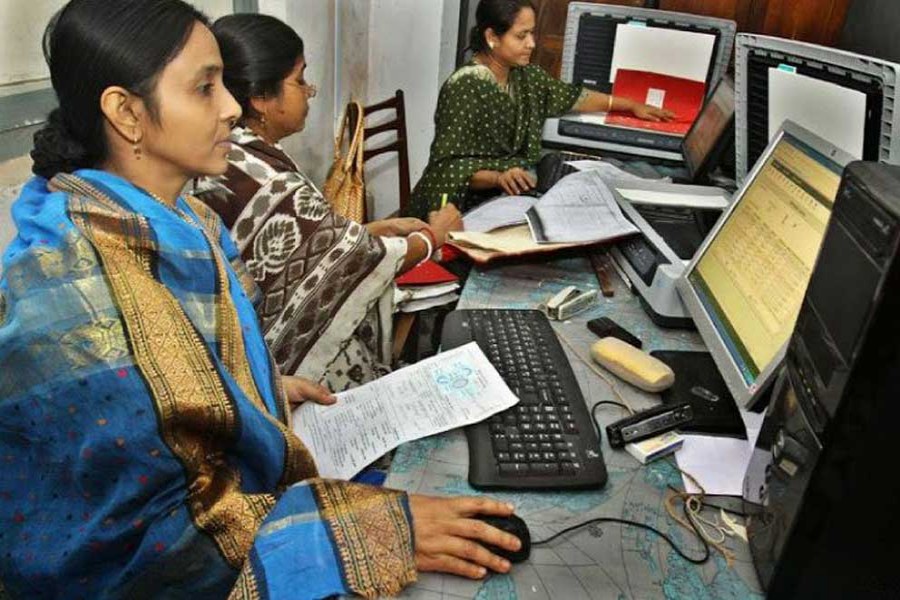Daredevil women driving easy-bikes are now common views in smaller towns in Bangladesh. Most of them are found to have reached their tether's end in terms of economic hardship. But they are no match to the well-built female truck or bus drivers in the Western countries. Many are found even on the drivers' seat of massive tractors. In general, livelihood of poverty-stricken urban women has long been confined to a few areas in Bangladesh. The scenario has been more or less similar in the country's cities and towns. The poverty-hit women's job situation in the country's capital Dhaka is different. Normally it offers varied types of livelihood. All of these jobs require physical labour. Apart from those employed at residents as domestic helps, urban women's traditional jobs once included mainly breaking fresh bricks or stones, the small pieces being used in building constructions.
Thirty to forty years ago, young slum women constituted the largest segment of the workers engaged in beating roofs, as a way of hardening the flat concrete surface. In a decade, carrying loads of finished bricksonto trucks at brick-fields became a common job for hardy women. Thus carrying heavy loads, be it earth or mortar at construction sites, has made significant inroads into the normally feminine jobs. The 7-month-long Covid-19 pandemic has radically changed the women's livelihood scenario. Enterprising women running 'pan-biri' shops, street-side 'pitha' (rice cake) corners or tea stalls used to be common spectacles in the capital. Due to the sudden fall in the number of clients, and, concurrently,the volume of their capital and profits, many such improvised business ventures were declared closed. The reason that had led to this plight of women's nondescript businesses lurked in the corona panic. Thanks to a stringent shutdown prompting less movement of people on roads, keeping the 'shops' meant counting losses. Fed up, lots of women shop-owners wound up their businesses. A similar scene was found at the roadside repair shops fixing minor mechanical problems of cycle-rickshaws and bicycles. Apart from assisting their husbands, a lot of these indomitable women opened their own shops, with their teenage sons or daughters helping them.
Since the disease's outbreak in Bangladesh, urban women labourers began losing their work in the traditional construction sectors. With the construction activities coming to a virtual halt, even male labourers were declared redundant by the contractors. In reality, the whole developers' community had found itself stricken by a disaster. Due to the pandemic-prompted period of future uncertainties, employers began retrenching workers. A large segment of those livelihood sources included big and small work sites, factories, especially the mid-level clothing and various types of manufacture units. In the final count, many happily employed women found them nowhere --- veritably left in the lurch. In fear of being infected by the pandemic, large sections of residences opted for doing without domestic help. One fine morning, many domestic helps found their jobs gone. The female factory workers and those in menial domestic jobs have never thought that such a phase of hard times will befall them. Amid this ordeal, a few of the women refused to budge in the face of the adverse times. However, many headed for their village homes. While the daredevil and adamant segments made forays into male-dominated jobs.
After the shutdown was lifted, many of these women were found in rickshaw-pulling, shoe-shining, hawking trinkets and selling vegetables and fruits. It has become a part of the new normal. In spite of being oppressed for ages, the Bengalee women are aware of their rightful status in society. They know how to strike back when they find their backs against the wall.


